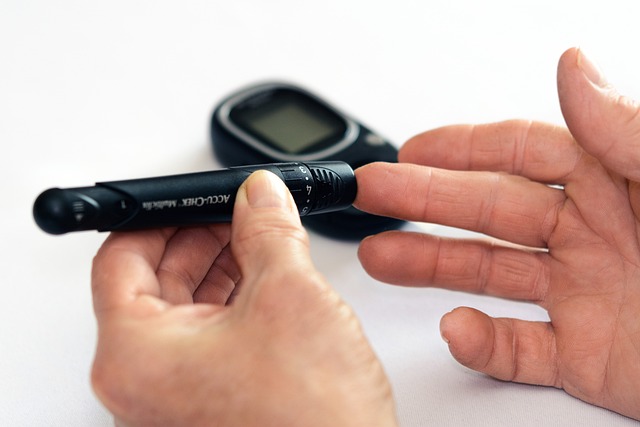Iron deficiency anemia, characterized by fatigue and oxygen transport issues, is detected using kidney blood tests UK (serum ferritin tests) along with hemoglobin and complete blood count (CBC) analyses. These tests identify low hemoglobin levels indicative of iron deficiencies, prompting timely interventions like dietary adjustments or supplements to prevent chronic complications. In the UK, the Kidney Blood Test UK is a vital tool for early anemia detection and effective management.
“Iron deficiency anemia, a common yet often overlooked health concern, can be effectively detected through blood tests. This comprehensive guide delves into the world of kidney blood test UK, a crucial tool in diagnosing this condition. Understanding anemia’s symptoms and its impact is essential for early intervention. We’ll explore a step-by-step diagnosis process, highlighting how blood tests measure iron levels to identify deficiency. By the end, readers will grasp the significance of timely detection and available resources, empowering them to take charge of their health.”
- Understanding Iron Deficiency Anemia and Its Symptoms
- The Role of Blood Tests in Diagnosis: A Step-by-Step Guide
- Kidney Blood Test UK: Uncovering Iron Deficiency Anemia
Understanding Iron Deficiency Anemia and Its Symptoms
Iron deficiency anemia is a common blood disorder where the body doesn’t have enough healthy red blood cells to carry adequate oxygen to the body’s tissues. This can lead to fatigue, weakness, dizziness, and shortness of breath, among other symptoms. It’s often caused by a lack of iron in the diet or blood loss from conditions like heavy menstrual periods, internal bleeding, or chronic illness. Understanding the symptoms is crucial as early detection through simple tests like a kidney blood test UK can help manage the condition effectively.
A kidney blood test UK, also known as a serum ferritin test, is one of several diagnostic tools used to identify iron deficiency anemia. Ferritin is a protein that stores iron in the body, and its levels in the blood can indicate the presence and severity of iron deficiency. Low ferritin levels suggest that the body doesn’t have enough iron reserves, which can lead to anemia. This test, along with others like hemoglobin testing and complete blood counts (CBCs), helps healthcare professionals diagnose the condition and determine the best course of treatment.
The Role of Blood Tests in Diagnosis: A Step-by-Step Guide
Blood tests play a pivotal role in diagnosing iron deficiency anemia, providing crucial insights into an individual’s overall health and nutrient levels. The process typically involves a simple kidney blood test UK, where a small sample is taken from a patient’s vein to analyze various components. This test assesses hemoglobin (Hb) levels, which indicate the amount of oxygen-carrying capacity in red blood cells. Low Hb levels are a strong indicator of anemia, including iron deficiency anemia.
The step-by-step guide for using kidney blood tests in diagnosis is straightforward. Firstly, a healthcare professional will clean and sterilize the patient’s skin at the site of venipuncture. Then, they carefully insert a needle into a vein, usually in the arm, to draw blood. The sample is then processed and analyzed for Hb levels. If iron deficiency anemia is suspected, further tests may be conducted to rule out other causes and determine the severity of the condition. This comprehensive approach ensures accurate diagnosis and effective treatment planning.
Kidney Blood Test UK: Uncovering Iron Deficiency Anemia
In the United Kingdom, a Kidney Blood Test plays a pivotal role in identifying Iron Deficiency Anemia (IDA). This test measures the levels of certain blood components, including hemoglobin and red blood cells, which are essential indicators of iron status. Hemoglobin, containing iron, is responsible for carrying oxygen throughout the body, and its low levels can signal IDA.
The Kidney Blood Test UK offers a straightforward method to uncover underlying iron deficiencies. By analysing a small sample of blood, healthcare professionals can detect abnormal haemoglobin levels, suggesting the presence of IDA. This early detection is crucial, as it allows for timely interventions such as dietary adjustments or supplementation to prevent further complications associated with chronic anemia.
Iron deficiency anemia is a common yet serious condition that can be effectively managed and treated with early detection. Blood tests, such as the kidney blood test UK, play a pivotal role in diagnosing this condition. By understanding the symptoms and following a step-by-step diagnosis guide, individuals can take proactive measures to address iron deficiency anemia and improve overall health outcomes.
